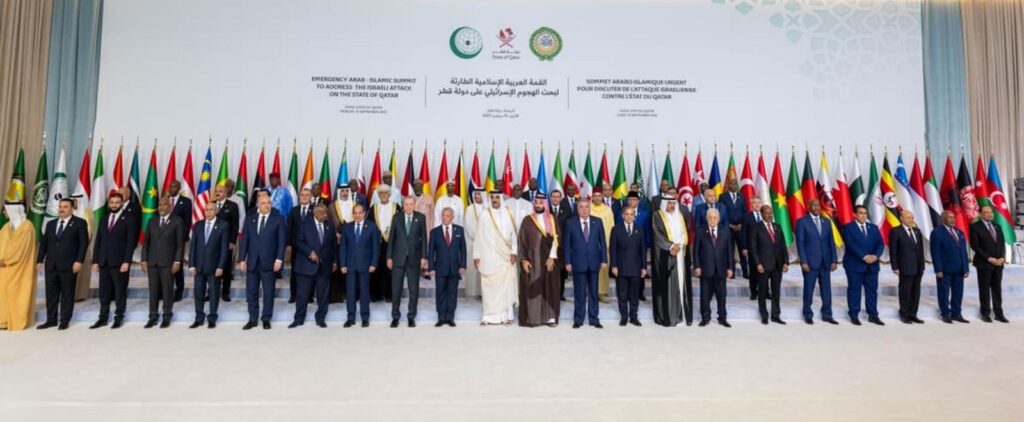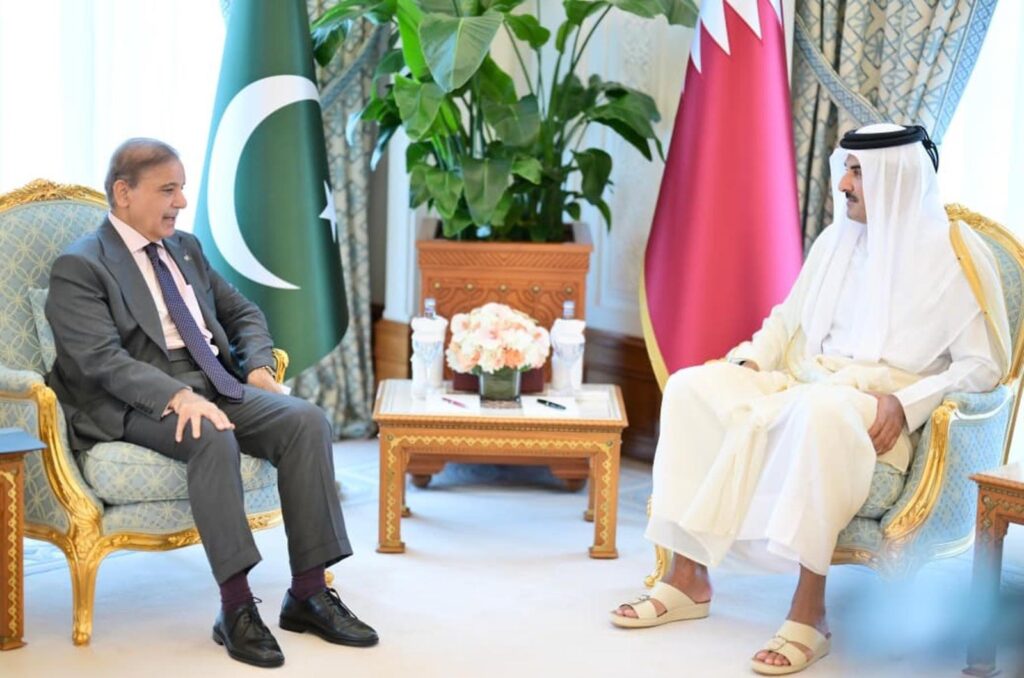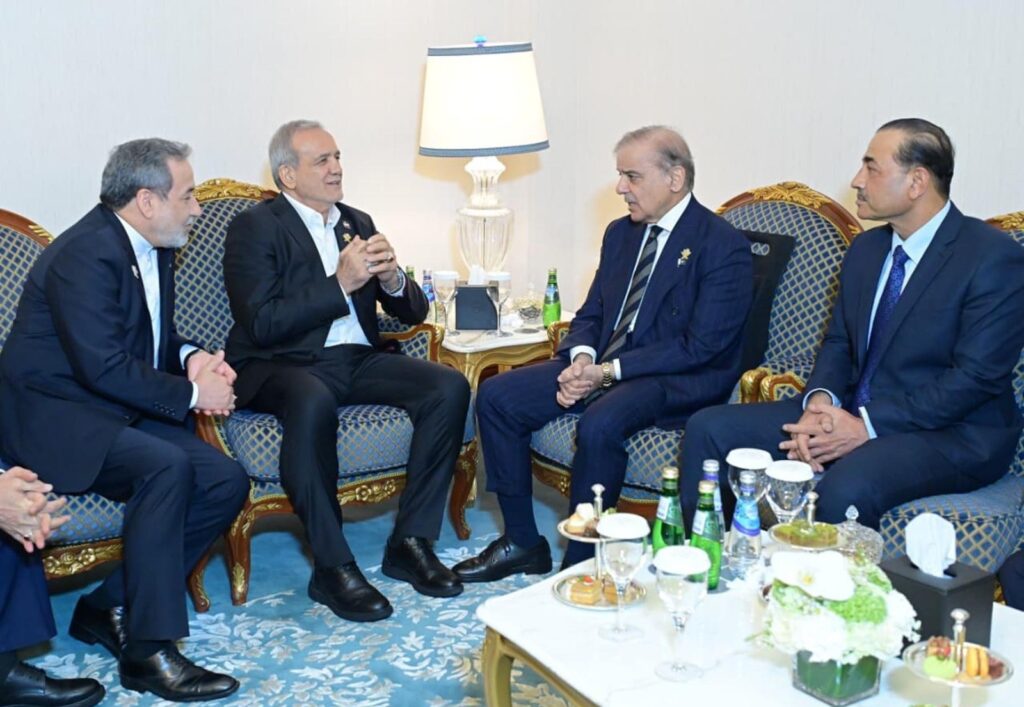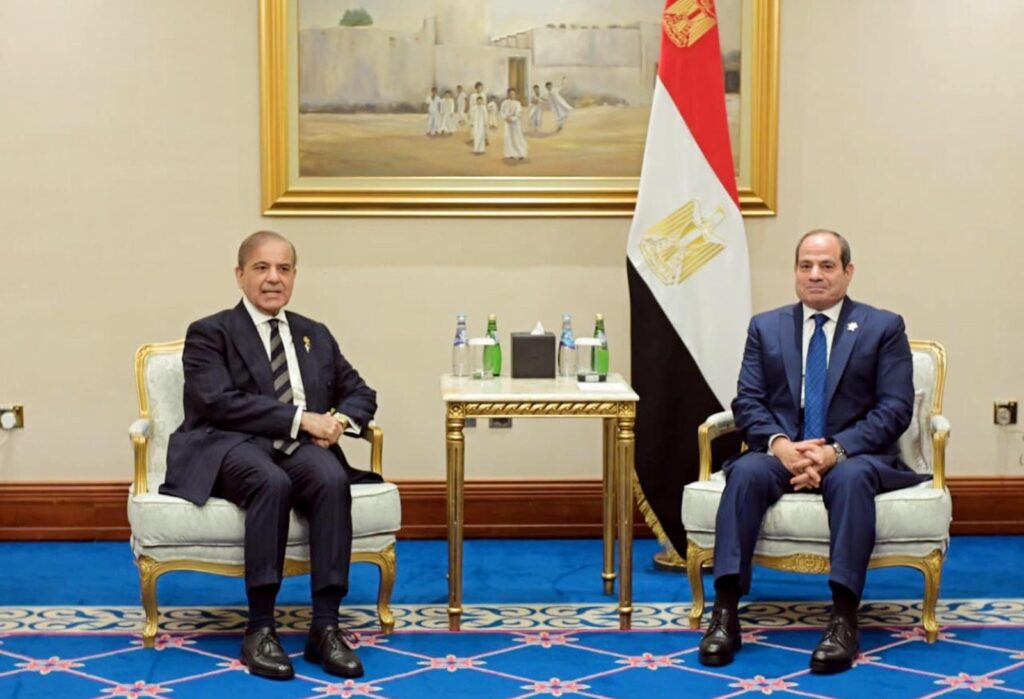By Sarosh Mustafa

Doha: More than 50 Arab and Islamic nations convened in Doha for an extraordinary summit following Israel’s unprecedented missile strike on Qatari soil. While leaders denounced the attack as a “direct assault on Muslim sovereignty” and reaffirmed support for Palestine, the summit revealed both unity in rhetoric and divisions in action.
Over two days, the summit addressed key issues: a permanent Gaza ceasefire, humanitarian access, legal accountability for Israeli leaders, and renewed commitment to a Palestinian state with East Jerusalem as its capital. Qatar’s Emir, Sheikh Tamim bin Hamad Al Thani, called the strike on Doha “state terrorism,” urging activation of GCC defence agreements. Yet, despite fiery speeches, the final communiqué stopped short of binding sanctions, trade boycotts, or military steps.

Pakistan Emerges as a Defiant Voice
Prime Minister Shehbaz Sharif’s address injected urgency into the proceedings, warning that condemnations without action would be a “betrayal of Palestine and the conscience of the Muslim world.” Pakistan proposed:
- Establishing a permanent Arab-Islamic task force to monitor Israeli violations.
- Launching a campaign to suspend Israel’s UN membership until it complies with international law.
- Coordinated state-level petitions to the ICC and ICJ for war crimes prosecution.
- Reaffirming the two-state solution with East Jerusalem as Palestine’s capital.


Uncompromising Position
Unlike some states balancing ties with Israel or Western allies, Pakistan took an unflinching line: no recognition, no relations, and full alignment with the global South’s anti-colonial struggles. Its proposals echoed public sentiment across Asia and Africa, demanding more than symbolic gestures.
As the summit closed, Pakistan’s bold stance highlighted the gap between lofty rhetoric and actionable policy. The Doha meeting may be remembered less for its resolutions and more for Pakistan’s defiant call to transform unity into strategy.























